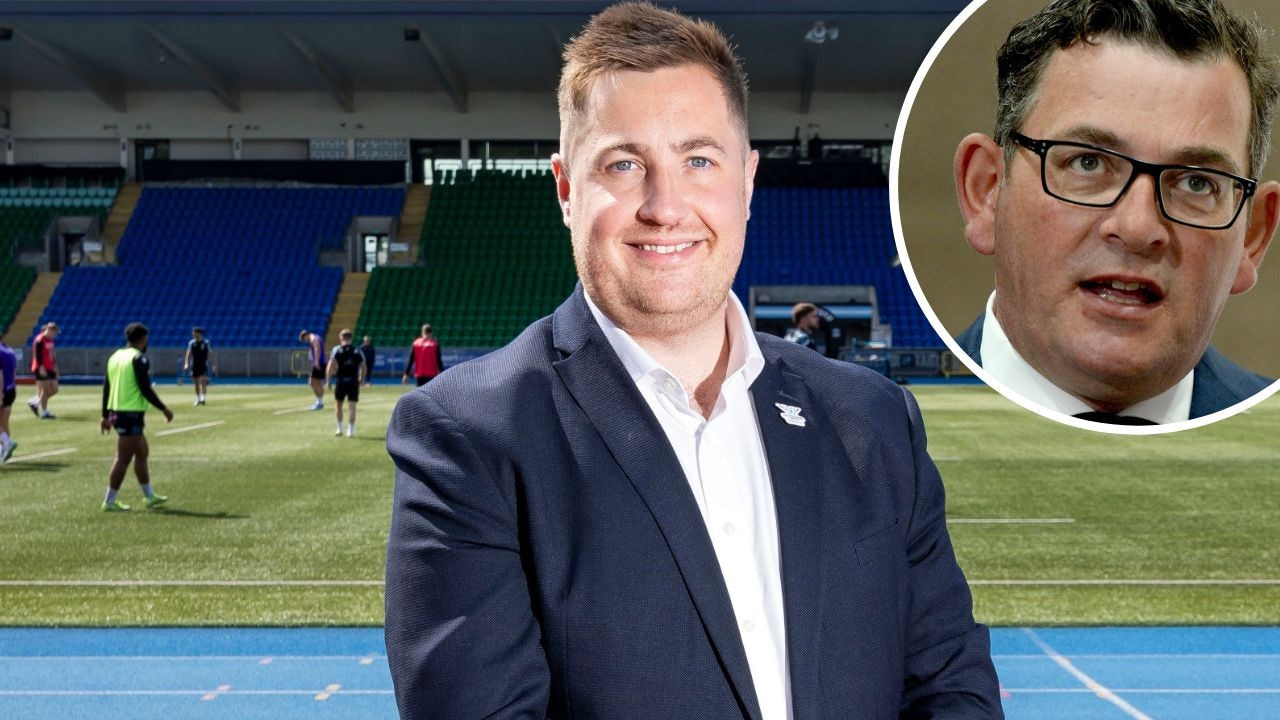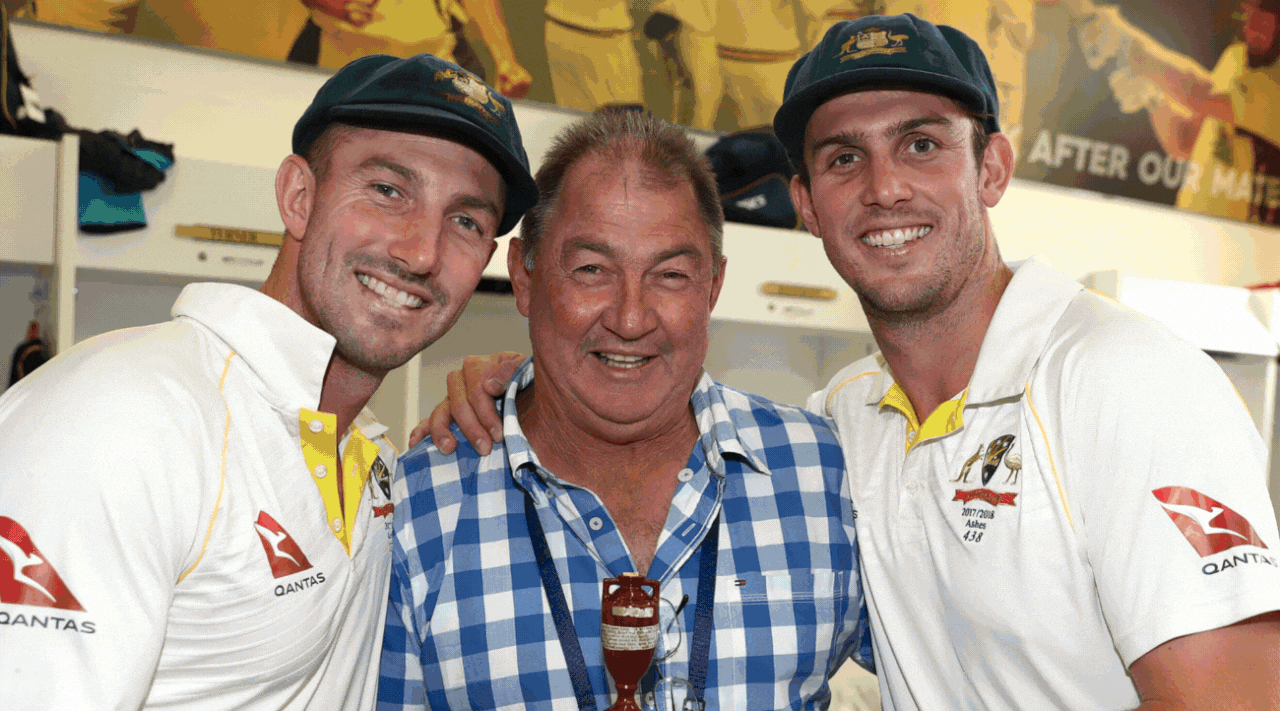Commonwealth Games 2022: Melissa Wu goes back to the future for Birmingham
A painful and persistent mystery back injury, sustained while filming SAS Australia has forced Olympic diver Melissa Wu to alter her plans for the 2022 Commonwealth Games.
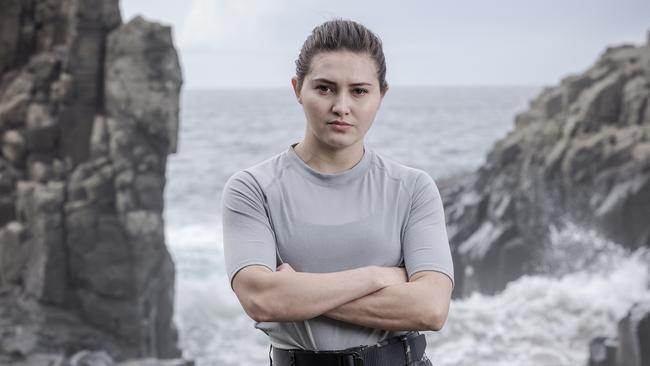
Comm Games
Don't miss out on the headlines from Comm Games. Followed categories will be added to My News.
To most it would have been a career ending injury – a reason to hang up the togs and bow out on high – to Melissa Wu a painful and persistent mystery back injury is just another challenge.
Wu, 29, sustained the injury while on set for SAS Australia, filmed shortly after she returned from Tokyo with a bronze medal around her neck – her first individual Olympic medal.
It left her grounded, off the boards and unable to flip or tumble.
Wu is still struggling with the pain but through physio, rehab and pilates has managed to work her way back to diving off the 10m platform – though the dives are at a much lower difficulty to those that earned her a spot on the podium in Tokyo.
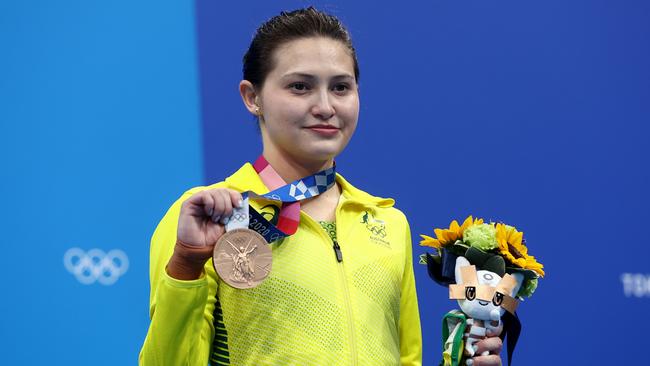
“At this point I haven’t found the magic cure,” Wu said.
“We are still trying to pinpoint exactly what it is.
“I’m just basically working with what I can do and just playing it by ear, like how much I can push myself and keep moving forward.
“I don’t think it will go away. It comes down to learning how to deal with it and making sure that I’m strong enough to mentally cope with that and handle the pressure of competition.”
Wu is Australia’s most successful diver – winning her first Commonwealth Games medal in 2006 at just 13 years old.
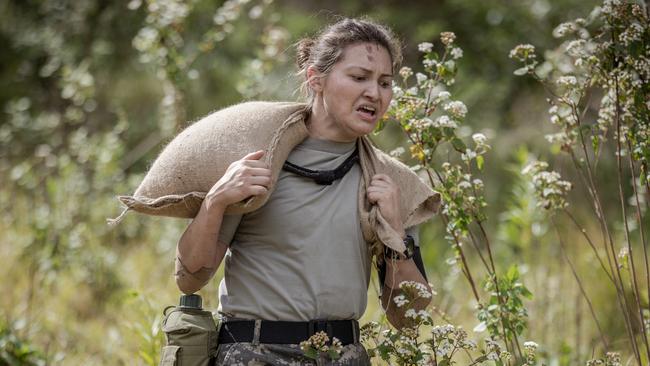
Two years later she became the youngest Australian diver to compete at an Olympic Games, and the youngest to win a medal – claiming silver in the 10m synchro event.
Wu also won gold in the 10m individual platform and just missed the podium, finishing fourth in the synchronised event at the 2019 Commonwealth Games.
She could have easily used the injury as a reason to get out of the game – focus on her other passions such as her clothing label or the family’s gym.
But the chance to build on her outstanding performance in Tokyo is driving her to give her green and gold togs at least one more outing.
“I was in a really good place mentally, physically and it was great to get such a great performance in Tokyo,” Wu said.
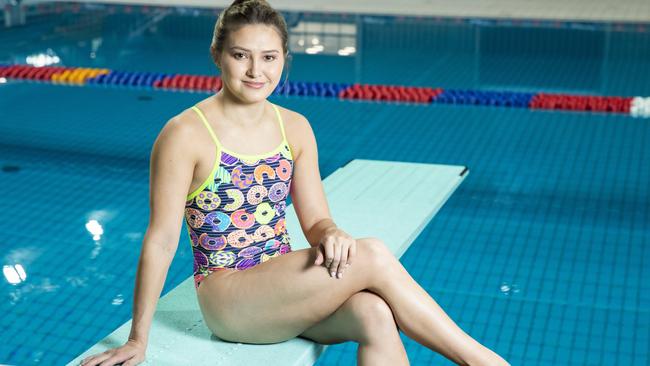
“I think it is hard, off the back of a peak performance, to just leave the sport.
“I just wanted to keep going for a little bit. I know it has got a shelf life but I want to do it while I can.”
In order to keep herself in the game Wu has had to do things differently and is going back to the event which started it all – 10m synchronised diving.
The synchronised event only requires divers to pull off three high rated difficulty dives, while the individual event requires five.
“I just want to go a little bit easier on my body,” Wu said.
“Synchronised diving is a bit more of a fun event, you get to dive with someone and you get that teamwork aspect as well, which I really love.”
The only thing Wu is missing is a diving partner. Wu and the other Australian divers hoping to qualify for the Commonwealth Games in June attended a synchronised training camp in Brisbane this week.
Wu’s mission was to find that perfect partner.
No decisions have been set in stone yet but Wu said she did enjoy the chance to dive with a few different girls and “explore all her options”.
SIMPLE SWAP PAYS OFF IN SEVENS STARS’ HUNT FOR GOLD
The emergence of a new wave of fleet-footed stars, plus a masterful switch of head coaches, has given fresh hope to Australia’s chances of finally winning one of the few prizes in international rugby that have eluded the men and women in gold.
Almost a quarter of a century since Rugby Sevens was introduced to the Commonwealth Games, Australia still hasn’t won a gold medal, instead collecting two silver and two bronze medals.
But with the 2022 Birmingham Games coming up in July-August, things are looking up again after the bitter disappointment of last year’s delayed Tokyo Olympics when both sides were knocked out in the quarter-finals.
Stream Over 50 Sports Live & On-Demand with Kayo. New to Kayo? Try 14-Days Free Now >
The harsh truth is no national sevens teams in the world suffered more than Australia’s during the 12-month postponement of Tokyo.
Prevented from travelling overseas because of the strict border lockdowns, they also lost a big chunk of their funding and with it some of their best players.
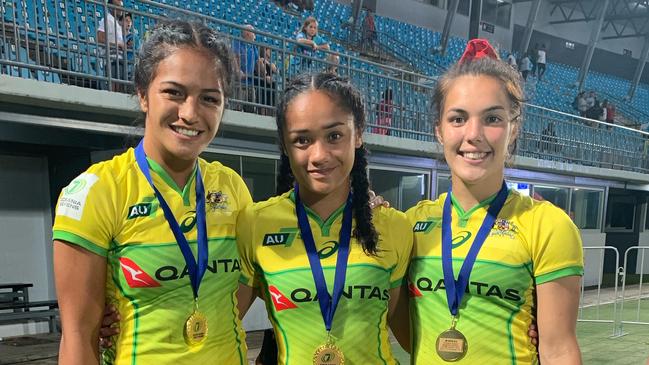
“It really was a wake up call for all of us,” said Faith Nathan, one of the brightest emerging talents in the women’s team. “We were the defending champions but we just couldn’t find our mojo. We played poorly but we went away and had a break and we’ve come back training harder than ever.”
There are plenty of fresh faces in both playing squads, but there’s also been some key changes in the coaching set-up.
In the review that followed Tokyo, it was decided to transfer the men’s coach Tim Walsh to the women’s team while moving John Manenti and his right-hand assistant James Stannard from the women to the men’s squad.
Although it was a relatively simple change it has paid big dividends, with the women’s team winning two World Series tournaments this season and the men making two finals.
“We’re not getting ahead of ourselves but we’re certainly seeing some positive signs,” Manenti said. “And the more time we get together and the more matches we get, we’re going to be in a better position for the Commonwealth Games.”
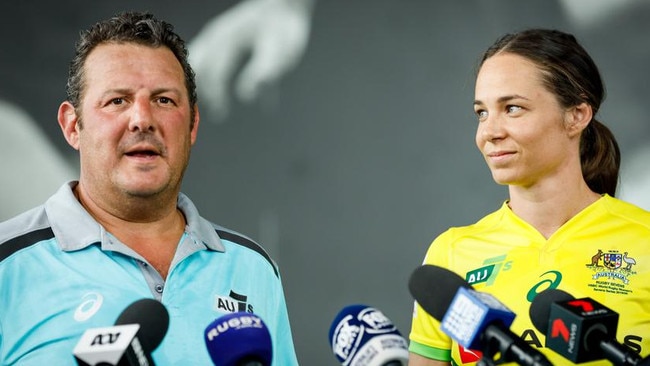
Despite the encouraging improvement shown by both Australian teams, winning a medal in rugby sevens at this year’s Commonwealth Games is still a formidable challenge because the standard of opposition is top shelf.
“You’ve got the Olympic champions, the world champions and the current World Series champions,” Manenti said. “You’ve got the best in the world all there so if you podium finish at the Comm Game, that’s a fair achievement.”
But the best in the world right now also includes the new-look Australians, who have plenty of new weapons at their disposal, not the least of which is renewed self-belief.
“I think right now we‘re fitter, we’re stronger, we’re faster,” Nathan said. “It‘ll be pretty cool to play the Commonwealth Games because it’s right up there. It is pretty much like a mini-Olympics and it’ll be really cool to test ourselves against all those countries.”
TRAILBLAZING ATHLETE LIFTING A NATION
– by Callum Dick
Brandon Wakeling’s weightlifting origin story begins in a commercial Gold Coast gym, in the late-evening hours long after well-meaning grandmothers claim nothing good can possibly happen.
But it’s then and there that the 28 year old from Ormeau, who this week was named to his second Australian Commonwealth Games weightlifting team, transformed himself from “gym guy” to gold medal hopeful.
Without his late-night lifting sessions on empty gym floors Wakeling, a former Gold Coast A-Grade rugby league player and hobby gym-goer, would not be headed to Birmingham.
“I remember going to my commercial gym at 11pm so no one could see me practising my snatches,” Wakeling told News Corp.
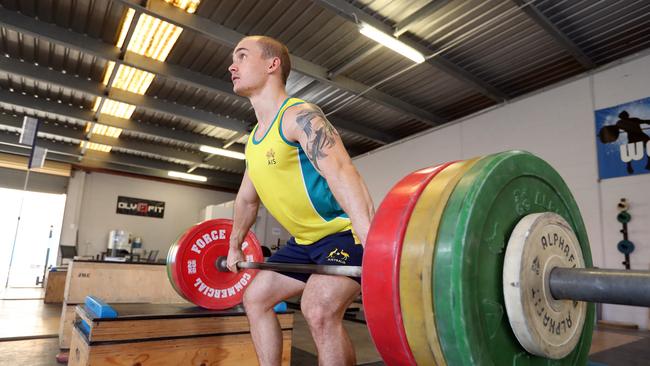
“I felt quite embarrassed about it at the time.
“Two years later I was doing it in front of millions watching on TV.”
A talented junior rugby league player and track and field star, Wakeling’s sporting dream was the same as many young kids in Queensland – to play in the NRL.
Beyond that, it was long jumping his way to the Olympics.
“I grew up playing rugby league and did athletics on the side and I thought when I was an adult I would either go to the NRL or to the Olympics for long jump – that’s what it was at the time,” he said.
“I stopped with the track and field when school finished but I rekindled that flame (with weightlifting), of a goal I had when I was five years old (to go to the Olympics). It’s weird how it came together like that.”
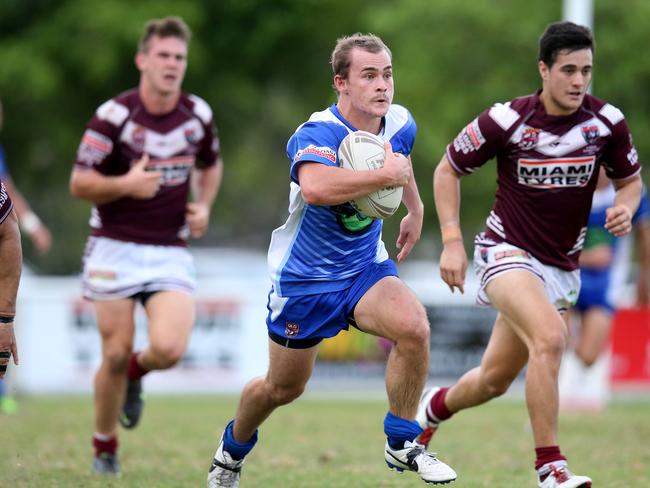
Wakeling will leave for Birmingham in July as one of the main medal fancies in the Men’s 73kg Class.
After finishing seventh in his Commonwealth Games debut in 2018 and 13th at the Tokyo 2020 Olympics, his best lifts put him right in the mix for the kind of magical medal moment his younger self first dreamt about.
That spark was first lit when five-year-old Brandon, bright-eyed and beaming, had his photo taken with the Sydney 2000 Olympic torch.
He still carries that photo. A memory of where the dream started.
Gold in Birmingham would be the perfect next chapter.
“I’ve ticked all the major comps off my bucket list by now: Olympic athlete, Commonwealth Games … now it’s time for gold,” he said.
“Rankings-wise I’m top-three. My competition bests are 127kg snatch and 175kg clean and jerk – that’s from 2020. The 175 was an unofficial Commonwealth record at the time.
“My lifts are up there with the best of them. If I can do that (in Birmingham) I’m in with a shot.”
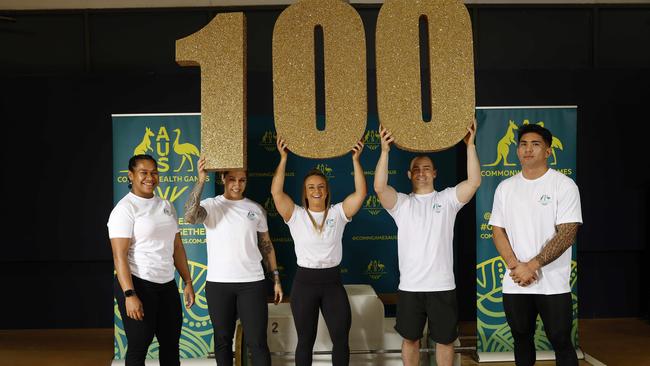
What started as a passing interest on a friend’s recommendation has blossomed into a lifelong passion for Wakeling, who now also works as an athlete ambassador for Deadly Choices.
The first Indigenous Australian to compete in weightlifting at the Commonwealth Games and second at the Olympics, Wakeling takes just as much pride in his role as a trailblazer as he does his physical feats.
“I think it’s important to have someone showing that there’s an alternative pathway that isn’t rugby league – to show the indigenous community that they can also be weightlifters,” he said.
Wakeling has learned plenty in the 22 years since he first held that Olympic torch and promised himself a gold medal. Including that his idol, Usain Bolt, isn’t always right.
“I remember he said he used to have chicken nuggets before every race, so as a kid I would get chicken nuggets before every football game or (track and field) event,” he said.
“Now that I’ve learnt about nutrition I know that was, well, not great advice.”
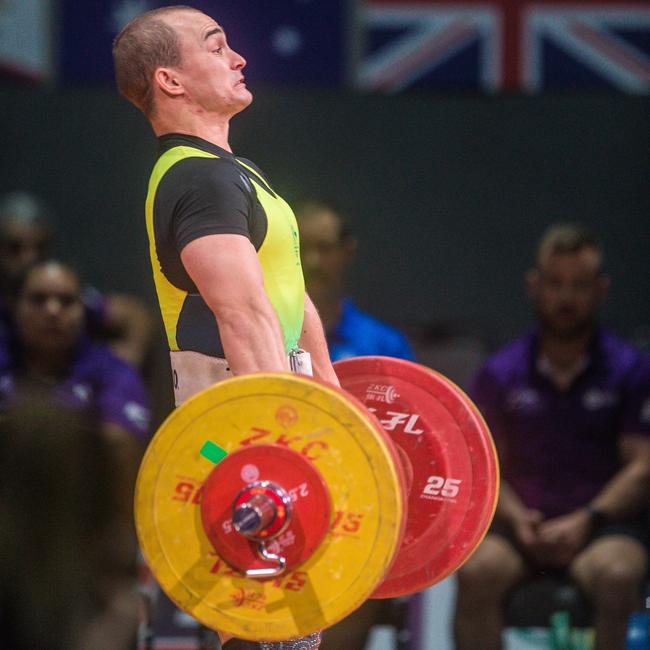
GOLD RUSH: AUSSIE ATHLETICS TEAM ON CUSP OF HISTORY
– by Scott Gullan
Two hundredths of a second, two centimetres and one position.
Doesn’t sound like much? The beauty of track and field is everything always revolves around the smallest of margins.
Australia had an excellent Tokyo Olympics and it could have been even better had those above margins fallen the way of the green and gold competitors.
Rohan Browning shocked the world when he won his opening heat of the Games, running a career best 10.01sec.
He goes .02sec faster and the Sydney university student is only the second Australian in history to go under the magical 10-second barrier.
Nicola McDermott burst onto the scene earlier in 2021 by breaking the national high-jump record, She leaps just 2cm more in Tokyo and her incredible silver medal becomes gold.
An Australian winning an Olympic semi-final on the track just doesn’t happen so when Peter Bol smashed the national 800m record in the process, the world was paying attention.
Three nights later he led at the bell in the Olympic final, was still in front coming around the bend before finishing a gallant fourth. What if he’d been able to hang on to third?
Australia finished Tokyo with three medals with Kelsey Lee-Barber (javelin) and Ash Moloney (decathlon) both winning bronze to add to McDermott’s silver.
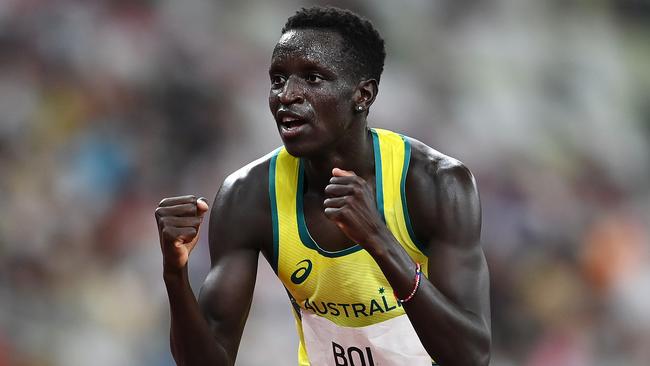
But what was even more exciting was the depth displayed by the track and field team with a host of finalists and top eight finishes.
All of this had Athletics Australia rubbing their hands together about the Birmingham Commonwealth Games.
Seizing on the momentum from Tokyo is the track and field team’s biggest challenge.
For Browning, 24, and his famous mullet, the natural progression is a spot in the 100m final. Four of the Tokyo Olympic finalists were from Commonwealth countries.
There were around a dozen in the semi-finals so it‘s not going to be a walk in the park for Australia’s budding superstar.
The bottom line is Browning has to get the elephant off his back and break 10 seconds if he is to be considered world class. The learning experiences of Tokyo should ensure that happens in 2022.
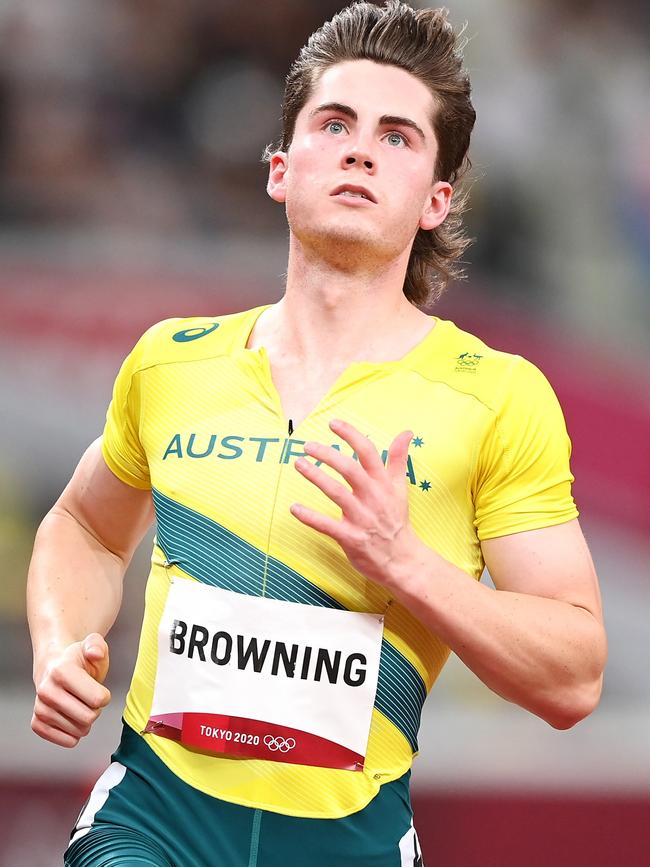
A hamstring injury meant he was only sighted once during the Australian summer but his 10.12sec at the Adelaide Track Classic in early February was all class.
Bol was one of the few Tokyo stars to feature prominently over the domestic season and he showed no signs of an Olympic hangover.
As his coach Justin Rinaldi is at pains to point out, the confidence Bol gained from making the Olympic final is what will propel him to the next level and in Birmingham that’s gold medal territory.
An Australian quinella in the women’s high-jump will be best bet of the Games with McDermott the logical favourite from her teammate Eleanor Patterson.
Patterson finished fifth in the Olympic final and then backed that up with her first career clearance of 2.00m to claim the silver medal at the world indoor championships in March.
Moloney, 22, is the most exciting talent in the athletics team and he confirmed his standing among the world’s elite by winning bronze in heptathlon on his world indoor debut.
Whether he competes in Birmingham or the world championships in Eugene, Oregon, just over a week earlier or in both events, is the million dollar question.
Barber will most likely lead an Aussie trifecta in the women‘s javelin after the reigning world champion shed a case of the yips to win an emotional bronze medal in Tokyo.
A Commonwealth gold is the only medal missing in her trophy cabinet and she will have stiff competition from 2018 champion Kathryn Mitchell and Tokyo Olympic finalist Mackenzie Little.
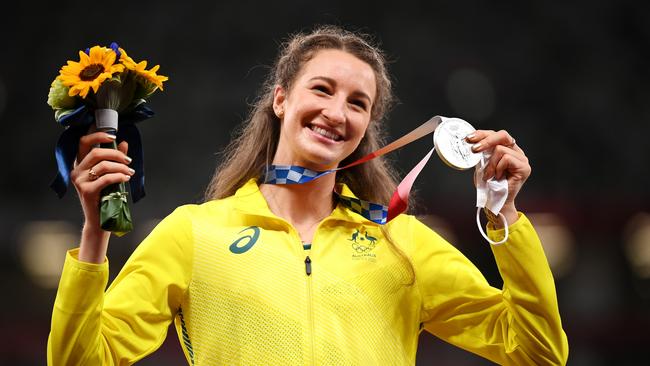
Middle-distance star Stewart McSweyn is world class and will be in the thick of the medal chase in the 1500m along with fellow Tokyo finalist Oliver Hoare.
The medal prospects are just as strong in the women‘s 1500m given what transpired in the Tokyo final where Linden Hall produced a career best to finish sixth with Jessica Hull just behind her on Olympic debut.
And then there is discus thrower Matt Denny. He is high up in the small margins discussion from Tokyo after finishing fourth, just five centimetres shy of the bronze medal.
Given the top three weren‘t part of the Commonwealth and the only other competitor in the final who he will face in Birmingham – Jamaica’s Chad Wright – finished ninth, Denny is in the golden seat.
He should have more teammates than usual putting themselves in a similar situation.
And if a few of them can get on the right side of those small margins, the Birmingham track and field team is set to be one of Australia‘s best for decades.



